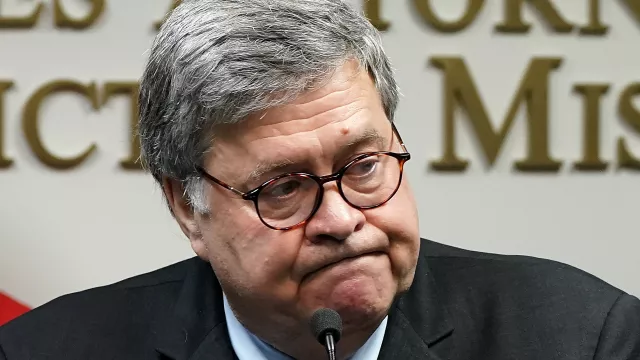It removes a hurdle in the potential prosecution of the men in the United States.
The decision, revealed in a letter from US attorney general William Barr to Home Secretary Priti Patel, could allow Britain to began sharing evidence with federal prosecutors in the US for any potential case against El Shafee Elsheikh and Alexanda Kotey.
An earlier British court ruling had effectively blocked the sharing of evidence without US assurances that the death penalty, which was abolished in the United Kingdom, was off the table.
“I know that the United Kingdom shares our determination that there should be a full investigation and a criminal prosecution of Kotey and Elsheikh,” Mr Barr wrote in the letter.
“These men are alleged to be members of the terrorist group the Islamic State of Iraq and al-Sham and to have been involved in kidnappings, murders, and other violent crimes against the citizens of our two countries, as well as the citizens of other countries.”

The British men, captured two years ago by a Kurdish-led, US-backed militia, are accused of participation in a brutal Islamic State group known for beheadings and barbaric treatment of American aid workers, journalists and other hostages in Syria.
The letter was first reported by Defense One.
US officials have not announced any charges against the men, but have spoken publicly about their desire to see members of the cell, known as The Beatles for their British accents, face justice.
The men were transferred to US custody last October as Turkey invaded Syria to attack Kurds who have battling the Islamic State alongside American forces.
Diane Foley, whose son, James, was killed six years ago by a member of the “Beatles” cell, said in an interview that she was gratified by the Justice Department’s action, which Mr Barr had said would be coming soon in a conversation with victims’ families this month.
“I feel that both countries ideally should work together to hold these men accountable and give them a fair trial,” Ms Foley said.
“If they are guilty, they need to be put away for the rest of their lives.”







